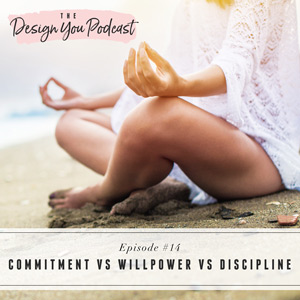
In last week’s episode, we learned how to get rid of indulgent emotions and outdated belief systems (our own BS) in order to move us in the direction of our dreams. Now, it’s time for action.
Massive action is absolutely necessary to get big results but few people actually take it. Why? Because they’re missing the key elements of propelling that action: commitment, willpower, and discipline. Engaging these three components of success in an intentional way will make all the difference as you move forward with your goals.
This week, I show you how to lock in your compelling reason for why you’re working so hard for your dreams, where willpower fits in, and how you can be a disciplined person… even if you don’t think you can. Listen in to hear my 7-Step Plan for Success and start smashing your goals today!





